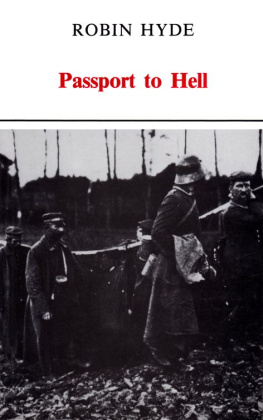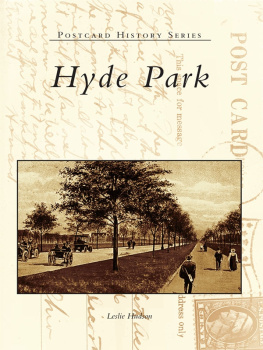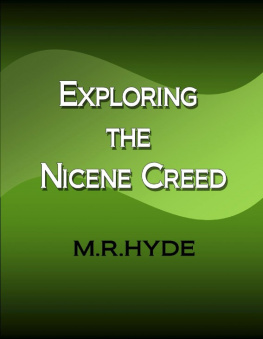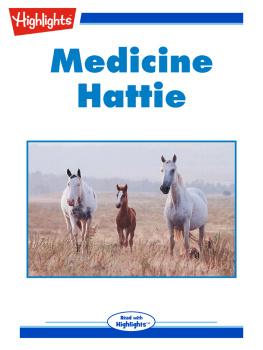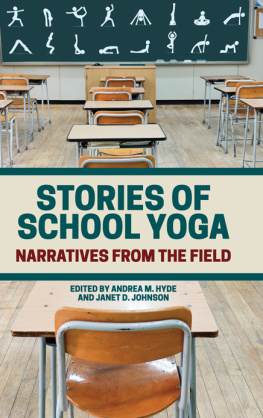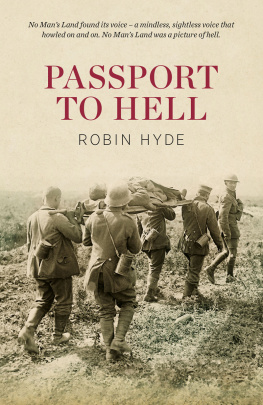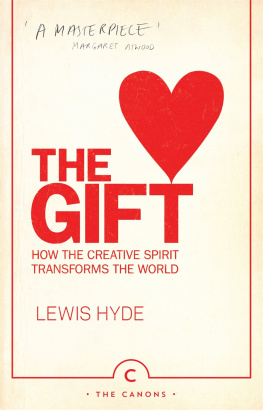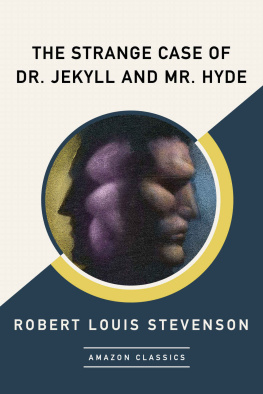Robin Hyde - Passport to Hell
Here you can read online Robin Hyde - Passport to Hell full text of the book (entire story) in english for free. Download pdf and epub, get meaning, cover and reviews about this ebook. year: 2011, publisher: Auckland University Press, genre: Detective and thriller. Description of the work, (preface) as well as reviews are available. Best literature library LitArk.com created for fans of good reading and offers a wide selection of genres:
Romance novel
Science fiction
Adventure
Detective
Science
History
Home and family
Prose
Art
Politics
Computer
Non-fiction
Religion
Business
Children
Humor
Choose a favorite category and find really read worthwhile books. Enjoy immersion in the world of imagination, feel the emotions of the characters or learn something new for yourself, make an fascinating discovery.
- Book:Passport to Hell
- Author:
- Publisher:Auckland University Press
- Genre:
- Year:2011
- Rating:3 / 5
- Favourites:Add to favourites
- Your mark:
- 60
- 1
- 2
- 3
- 4
- 5
Passport to Hell: summary, description and annotation
We offer to read an annotation, description, summary or preface (depends on what the author of the book "Passport to Hell" wrote himself). If you haven't found the necessary information about the book — write in the comments, we will try to find it.
Passport to Hell — read online for free the complete book (whole text) full work
Below is the text of the book, divided by pages. System saving the place of the last page read, allows you to conveniently read the book "Passport to Hell" online for free, without having to search again every time where you left off. Put a bookmark, and you can go to the page where you finished reading at any time.
Font size:
Interval:
Bookmark:
GeneralEditor Bill Pearson
The photograph reproduced on the front cover and on these pages is an N.Z. Official Photograph printed in A. E. Byrne, OfficialHistoryofthe Otago Regiment, N.Z.E.F. in theGreatWar191418, Dunedin 1921, and captioned German Prisoners carrying out Wounded.
PassporttoHell
DedicatedonStarkiesbehalfto
TheRev.GeorgeMoreton
Onmine,withgratitude,
toDrG.M.Tothill
PassporttoHell is the story of 8/2142 Private J. D. Stark, Fifth Reinforcements, Otago Infantry Battalion N.Z.E.F., his youth in New Zealand and his experiences in the Great War of 191418. He returned to New Zealand disabled and without skills and like many soldiers found enormous difficulty in adjusting to civilian life. His drift into marriage, prison, violence, and occasional labour is told in another of Robin Hydes books NortheYearsCondemn. He survived the outbreak of World War II, marriedfor the third timea twenty-three-year-old, Peggy Christina Linton, and suffered the ironic indignity for one of his former daring, of receiving two anonymous white feathers (OtagoDailyTimes, 10 January 1940). He died in Auckland on 22 February 1942, of bilateral broncho-pneumonia with toxic myocarditis, betrayed finally by his wounded lungs. He was buried in the soldiers section of Waikumete Cemetery by his friend the Reverend George Moreton, to whom he had asked Robin Hyde to dedicate PassporttoHell.
Hyde first heard of Stark through her investigative journalism on prisons for the NewZealandObserver. She joined the Observer in 1931 just after it had doubled its size, increased its price and aggressively sought more readers, believing that there is a place in Auckland and the provincial district for an informative , illustrated, topical weekly, presenting not so much the ordinary news of the week as the news behind the news and comments thereon. but as far as I know she did not hear about Stark at this point. It is interesting however to find how convincing she was in writing of prison conditions for in the same letter to Schroder she observes, And here was a compliment: the prison chaplain told me that the authorities spent hours hunting through the files for a convict named Robin Hyde! When, over a year later, she came to write an article on the chaplain, George Moreton, he drew her attention to a figure immediately recognizable as Starkie. Moreton had shown her letters from former prisoners requesting help:
There is one from a gentleman whom we will call Sammywhich isnt his name. During the war, this man saved the Hon. Downie Stewarts life, pulling him out of a bombed dug-out. He was absolutely fearless, and his chest is literally tattooed with bullet wounds. In Wellington he was once concerned in an assault cause, and got the worst of it. Mr Downie Stewart sent him to a private hospital and paid for a bottle of brandybut this unfortunately was left beside the patients bed. Sammy revived somewhatand when the doctor came in, he found a distinctly tipsy patient, in a cheerful frame of mind. This man sends occasional telegrams to plenipotentiaries in Wellington. Dear Gordon, About ten wolves at the door, waiting your O.K. for job, may be regarded as a new one on the Hon. J. G. Coates. Mr Moreton is blithely addressed as Young fellow me lad, or Dear George. Yet this man, married now and passionately devoted to his wife and children, keeps his little home spotlessly clean, and hopes one day to pay back the one tin jam, 2 lbs butter, one tin baking powder for which he now has to ask the D.P.A. [
It was not until February 1935 that Hyde returned to Starkie, this time to interview him for a book. However, within a month she announced triumphantly to Schroder:
The book that might have been a nightmare is finished. It is a nightmare, but I think it is a bookHarder, barer and more confidentIts the story of a soldierhe exists and I know him very well. His queer racial heritagehe is half Red Indian, half Spaniardhas taken him into desperate places: prisons, battles, affairs. With it all hes something of a visionary and in physical courageunquestionably heroicI wrote the book because I had to write it when I heard his story, and because its an illustration of Walt Whitmans lineThere is to me something profoundly affecting in large masses of men following the lead of those who do not believe in man.
As George Moreton remembered it, he had initiated the writing of PassporttoHell sometime in the winter of 1935:
It must have been somewhere about that time that one morning , a slight woman with an interesting face and a lame leg swung into my office on a walking stick. Her name was Iris Wilkinson although, perhaps, she was better known to most people under her pen name Robin Hyde. She was inconspicuous enough until she began to talk and then you instantly realized that the person sitting before you was not ordinary; the acuminated intelligence behind the sensitive face made you feel like a ponderous galleon awkwardly trying to avoid the lightning shot of a nimble frigate. I forget most of what we talked about that morning but I do know towards the end of our conversation I asked her if she would like a good story: her smile was tolerant. I should very much, she replied, I must confess a weakness for good stories.
I leaned over and drew a package from my desk and handed it to herit was the diary of James Douglas Stark, bomber in the Fifth Regiment, N.Z.E.F., during the Great War. I can recall the excited pursing of Iris Wilkinsons lips as she turned the pages of the document and the way she laughingly waved her stick as she left my office. And that was really the genesis of PassporttoHell, a book which a well-known English paper described as wild and strange as anything any warbook writer has remembered or imagined.
It is impossible to tell if this work was in the package which George Moreton handed to Robin Hyde, but she certainly possessed a very sketchy and overwritten account of a number of Starks adventures. It is contained in a black exercise book, part of Derek Challiss collection of his mothers papers, and written in a hand quite unlike that of Robin Hyde or of Stark. Inside the left front cover is an inscription in Starks writing: C. Murphy, No 1 p.189 inclusive 7/9/29. The writer is clearly a novice, for he notes down Useful Books: The Commercial Side of Literature, Journalism for profit, and How to write a short story, and there are rough drafts of different material interspersed with vocabulary lists. I assume that Stark met him in prison and hoped that he would ghost-write his experiences. Murphy on the other hand, hoped to break into print with Starks story, and get out of prison. This emerges from the draft of a letter from Murphy to Stark on folio 30 of the exercise book:
Since writing this book of yours I have decided to continue on in the business. I have always had a flair for writing and wish to utilize the time here in something of use to me when I leave. Now I wish to suggest that you let me remain the author of yours not as to any spirit of greed but that it may give me a chance to have other things published which I intend writing. Again should any money be forthcoming for your book I dont want any of it except of course at your own desire. My object is to break into print. With your book as a lead I shall undoubtedly have the chance of a lifetime, not only in gaining prominence in print but as a lever to get myself out of this.
Font size:
Interval:
Bookmark:
Similar books «Passport to Hell»
Look at similar books to Passport to Hell. We have selected literature similar in name and meaning in the hope of providing readers with more options to find new, interesting, not yet read works.
Discussion, reviews of the book Passport to Hell and just readers' own opinions. Leave your comments, write what you think about the work, its meaning or the main characters. Specify what exactly you liked and what you didn't like, and why you think so.

